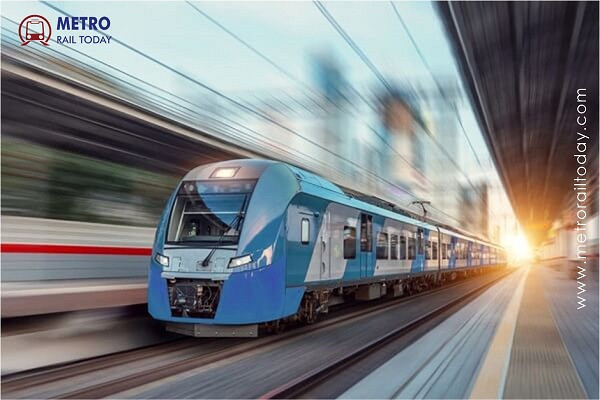 Hind Rectifiers acquires French Robotics Firm BeLink Solutions to strengthen Global Footprint
Hind Rectifiers acquires French Robotics Firm BeLink Solutions to strengthen Global Footprint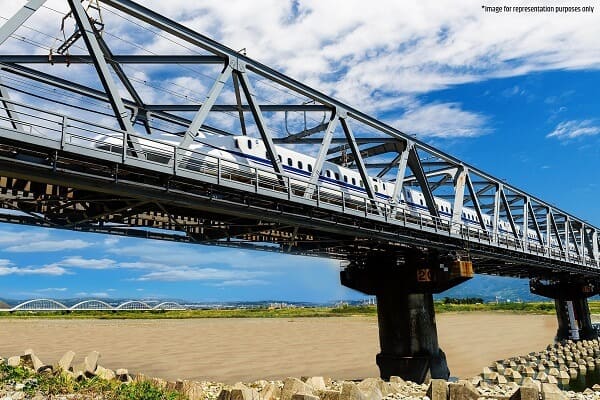 10th Steel Bridge launched on Mumbai–Ahmedabad Bullet Train Corridor in Ahmedabad
10th Steel Bridge launched on Mumbai–Ahmedabad Bullet Train Corridor in Ahmedabad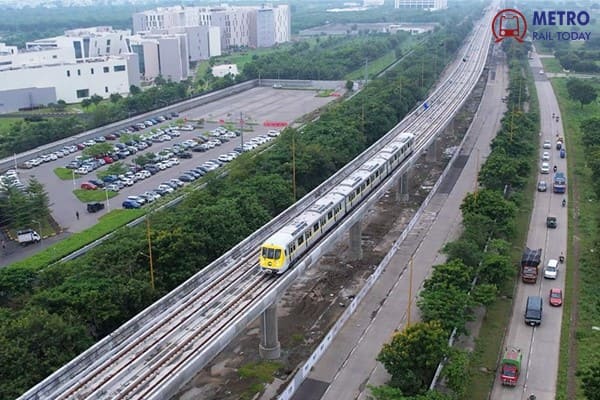 Indore Metro conducts successful trial run on Yellow Line's Priority Corridor
Indore Metro conducts successful trial run on Yellow Line's Priority Corridor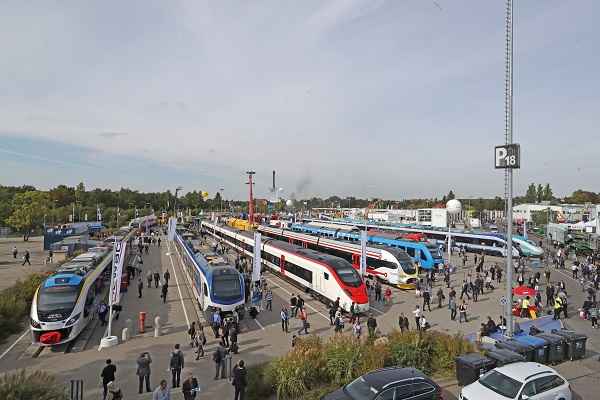 Germany launches National Initiative to Standardize Rolling Stock Fleet by 2030
Germany launches National Initiative to Standardize Rolling Stock Fleet by 2030 India’s First Bullet Train to begin Operations by August 2027: Railway Minister Ashwini Vaishnaw
India’s First Bullet Train to begin Operations by August 2027: Railway Minister Ashwini Vaishnaw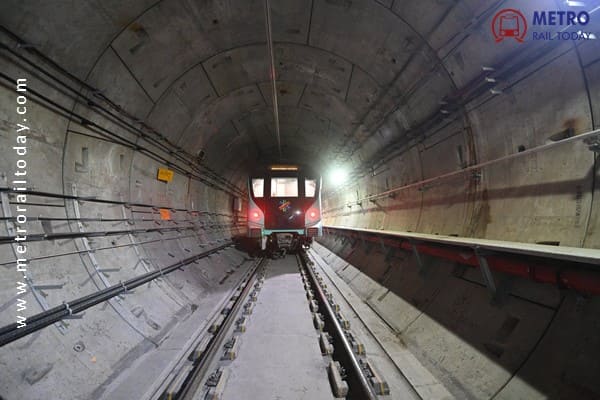 Leadership and Expertise behind the success of Mumbai Metro Line 3 (Aqua Line)
Leadership and Expertise behind the success of Mumbai Metro Line 3 (Aqua Line)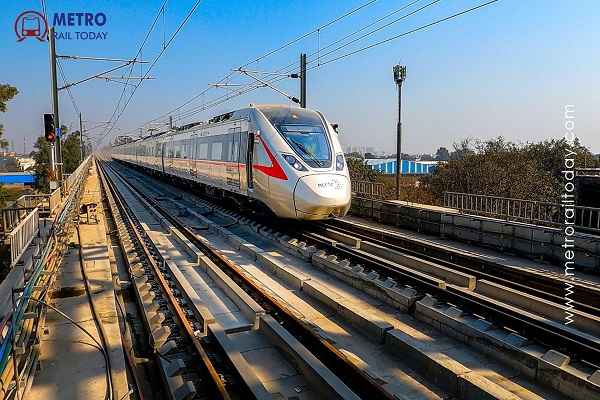 NCRTC to appoint General Consultant for Delhi–Gurugram–SNB Namo Bharat Corridor
NCRTC to appoint General Consultant for Delhi–Gurugram–SNB Namo Bharat Corridor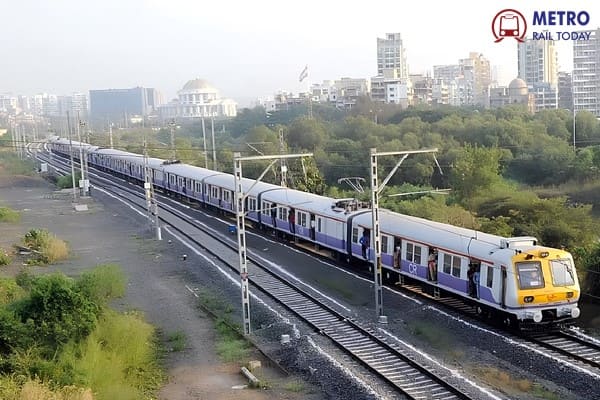 K-RIDE to float fresh civil tender after terminating L&T from Bengaluru Suburban Rail Project
K-RIDE to float fresh civil tender after terminating L&T from Bengaluru Suburban Rail Project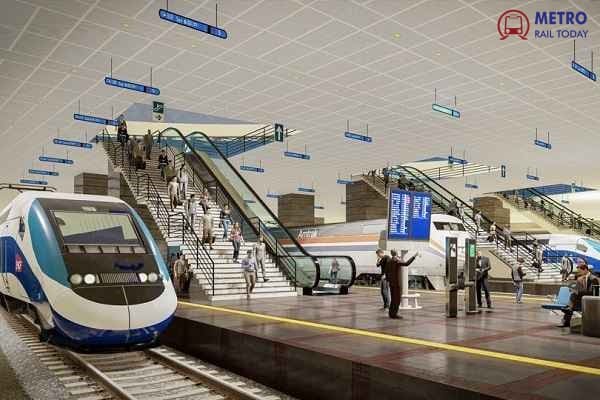 Airtel Business bags multi-year contract for Indian Railway Security Operations Centre
Airtel Business bags multi-year contract for Indian Railway Security Operations Centre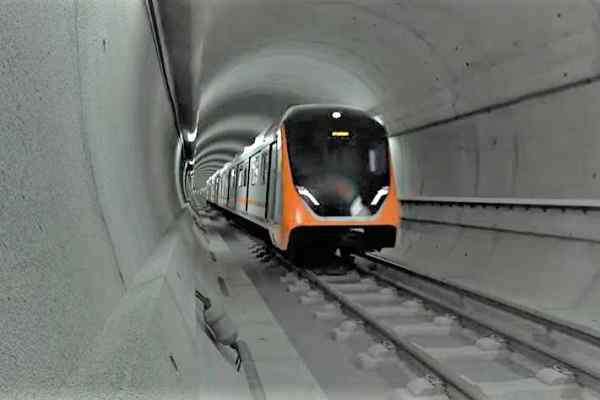 TBM Vidyarthi achieves Final Tunnel Breakthrough for Kanpur Metro Corridor 1
TBM Vidyarthi achieves Final Tunnel Breakthrough for Kanpur Metro Corridor 1
Bangalore Metro likely to procure 6 Additional Trains from BEML to ease Yellow Line congestion
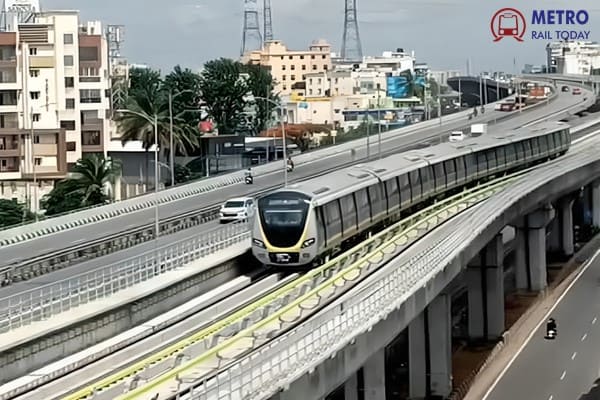
Bengaluru, India (Metro Rail Today): In an effort to address rising commuter congestion on the newly launched Yellow Line of Namma Metro, the Bangalore Metro Rail Corporation Limited (BMRCL) is considering placing a variation order with BEML for the procurement of six additional CBTC-enabled trains, comprising 36 coaches in total. This line connects RV Road to Bommasandra, a crucial corridor serving the tech hub of Electronics City, which has witnessed a steep surge in ridership.
The proposal is still under discussion, with BMRCL currently working on cost estimates and examining whether the variation order can be integrated within the scope of its existing ₹3,177 crore rolling stock contract awarded to BEML for 318 coaches for the Pink, Blue (Phases 2A & 2B) lines.
Mrs. Mamta Shah, MD & CEO of Urban Infra Group, said, “Augmenting rolling stock capacity on high-demand corridors like the Yellow Line is not just a short-term fix but a strategic move to enhance frequency, reduce wait times, and sustain rider confidence in public transport.”
What’s Driving the Urgency?
Since opening earlier this year, the 19.2 km Yellow Line has become a key connector between southern Bengaluru and key employment clusters. The daily ridership has already crossed 80,000 passengers, despite train frequency currently being limited due to a shortage of operational trains.
Currently, BMRCL operates four trains on the Yellow Line, with frequency improved from 25 minutes to 19 minutes. The fifth and sixth trains are expected by September 19 and end-October, respectively, from Titagarh Rail Systems, which partnered with CRRC China after initial delays.
However, operational needs call for at least one train per km, which translates to 19–20 trains for the Yellow Line alone. This has prompted BMRCL to explore fast-tracking local manufacturing through BEML, which can deliver trains within 12 months, officials said.
CRRC Contract Delays Continue to Haunt BMRCL
The original contract for 216 coaches (21 trains for Purple & Green lines, and 15 trains for Yellow Line) was awarded to CRRC in 2019 for ₹1,578 crore. However, due to the lack of a domestic manufacturing setup and the India-China border standoff, the project faced repeated setbacks.
Only five trains have been delivered to date—four for Yellow Line and one for Purple Line, the latter currently undergoing trials with RDSO and CMRS certification expected by mid-2026.
Despite CRRC offering the lowest bid, rules prevented awarding the contract to BEML or others, even though BEML later agreed to match the price.
Technical Compatibility and Procurement Strategy
A senior official stated that interoperability issues with different train suppliers are minimal, as both CRRC and BEML trains use propulsion systems from Mitsubishi Japan. The main additional requirement is to interface BEML trains with Siemens signalling on the Yellow Line, as opposed to Alstom systems used elsewhere in the network.
This compatibility gives BEML a significant advantage in fulfilling BMRCL’s immediate needs. Officials believe BEML can execute the order in under a year, given its existing manufacturing infrastructure and familiarity with Bengaluru Metro systems.
Airfreighting from China Ruled Out
Bengaluru South MP Tejasvi Surya recently urged airlifting bogies from China to expedite Yellow Line services. However, BMRCL officials deemed this approach impractical, citing:
-
High cargo weight (15 tonnes per bogie)
-
Limited cargo flight frequency from Shanghai
-
Customs and onward transport delays
Compared to 21 days by sea, airfreight would not significantly reduce lead times, officials said.
Current Train Shortfall
BMRCL currently operates 61 trains across a 96-km network, far below the planned 93 trains needed to maintain 3–4 minute headways. The delays in CRRC coach deliveries have affected system-wide frequency and passenger comfort, especially on newer corridors like the Yellow Line.
As Bengaluru Metro prepares for major capacity augmentation across its Phase-2 corridors, the proposal to add six more BEML-built trains could be a game-changer for passenger convenience and operational stability—particularly on the fast-growing Yellow Line.
With commuter volumes rising and Phase-3 on the horizon, BMRCL’s ability to manage rolling stock procurement smartly will determine how quickly Bengaluru’s metro network can live up to its growing mobility needs.




